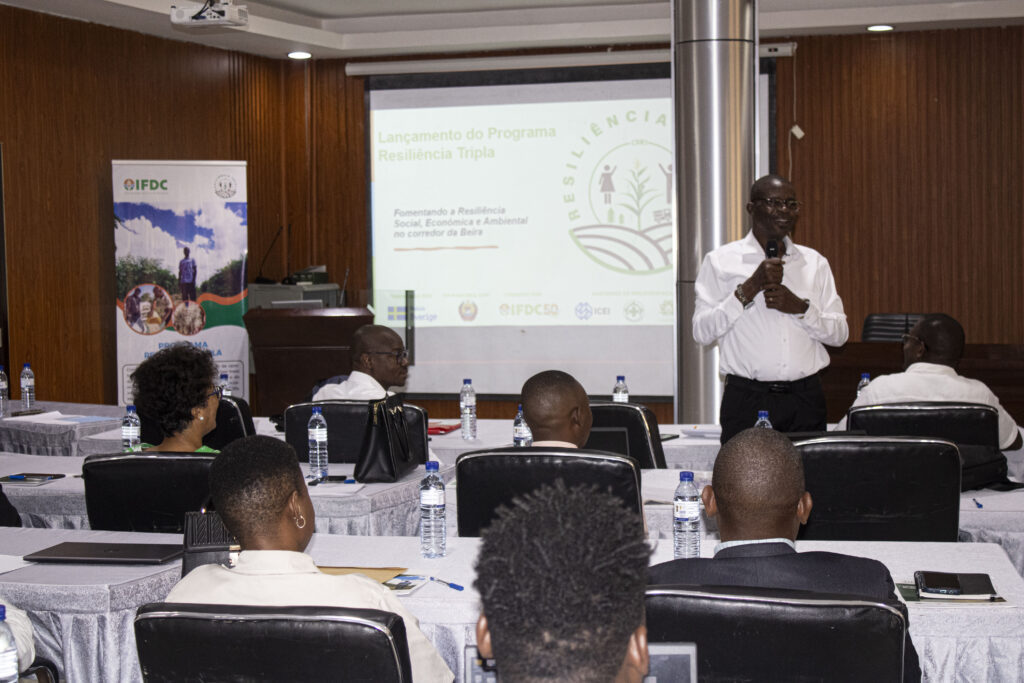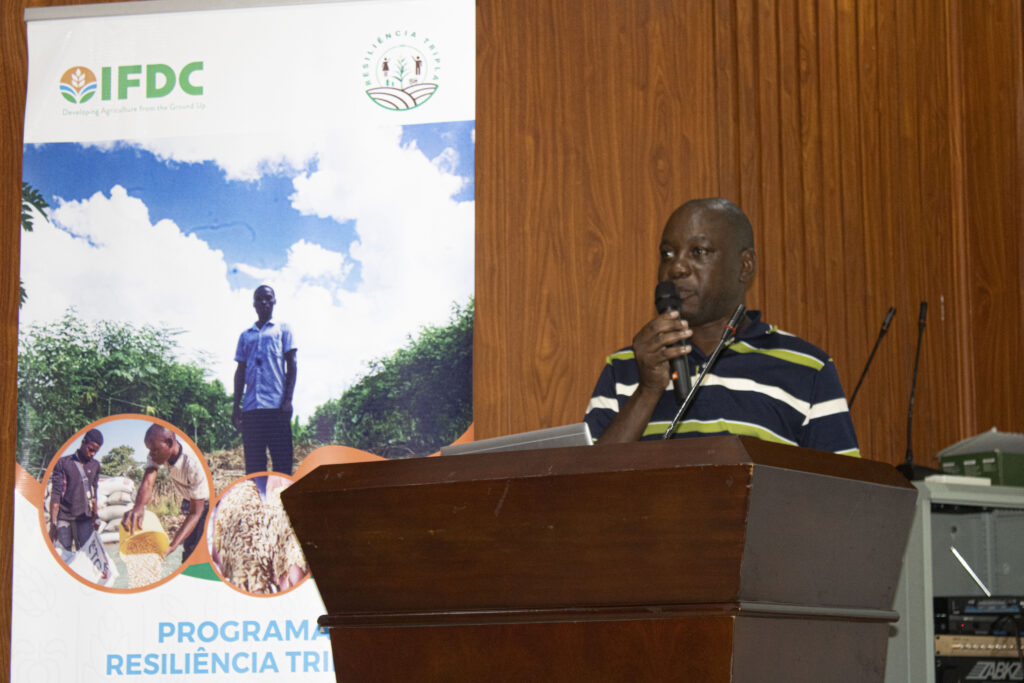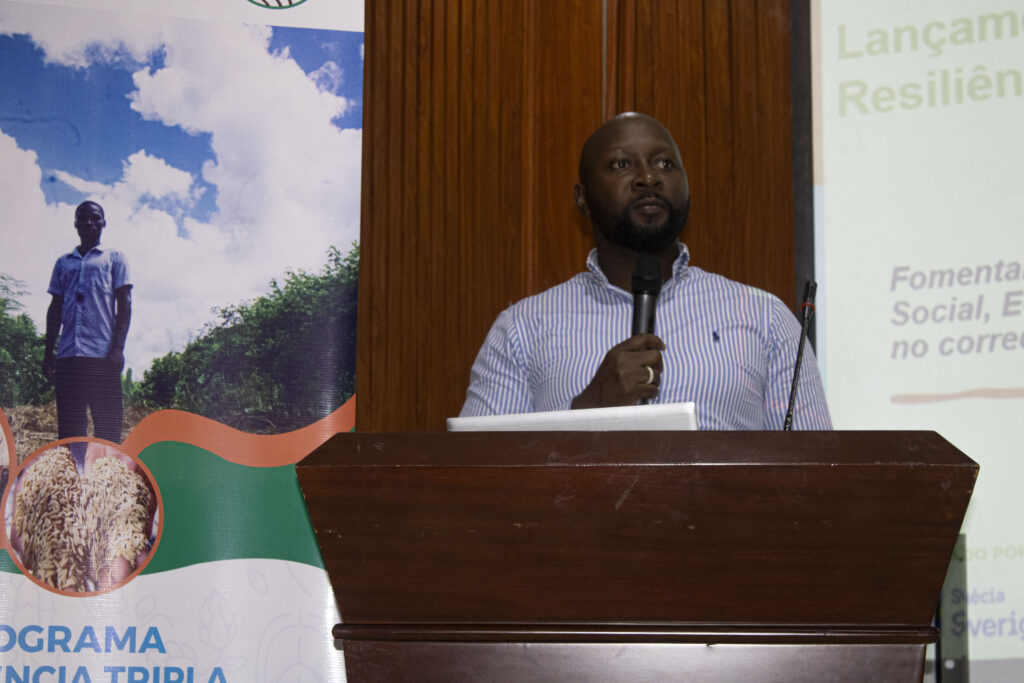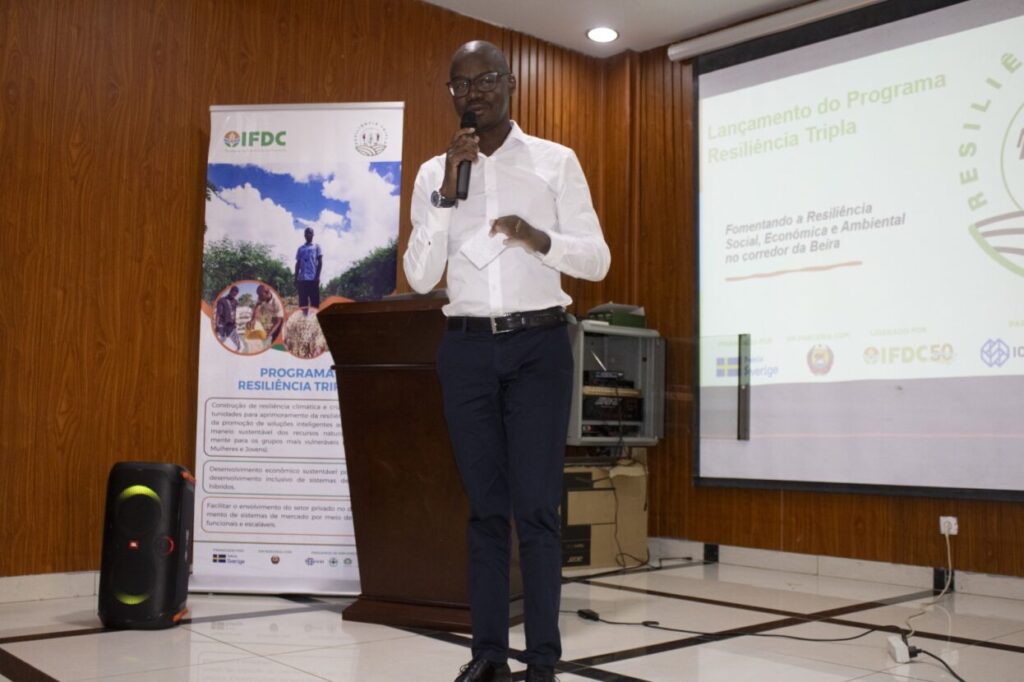
On March 15, the International Fertilizer Development Center (IFDC) and consortium partners convened for the launch of the Triple Resilience (3R) program in Chimoio, Mozambique. The event set the stage for a transformative journey that seeks to empower communities, protect livelihoods, and cultivate brighter futures for generations to come.
Funded by the Embassy of Sweden in Mozambique, the 3R program is being implemented in the provinces of Manica and Sofala by IFDC in collaboration with LevasFlor Foundation, the International Economic Cooperation Institute (ICEI), Norwegian People’s Aid (NPA), Associação Kwaedza Simukai Manica (AKSM), União Provincial Dos Camponeses De Manica (UCAMA), and União Provincial de Camponeses de Sofala (UPCS).

The program, which will run until 2027, aims to build and strengthen the social, climate, and economic resilience of 42,000 small-scale farmers in Mozambique by promoting sustainable development and equipping communities to adapt and transform in the face of recurrent climatic shocks and stresses.
During the event, 3R Program Manager Joshua Muradzicua highlighted the program’s objectives and implementation strategies, saying, “The objective of the 3R program is to utilize local expertise to address challenges across three key areas: enhancing resilience to natural disasters and military insecurity, combating malnutrition, and minimizing conflicts to facilitate economic development. Implementation efforts will encompass nine districts in the provinces of Manica and Sofala.”
“This event marks the beginning of a collaborative journey. Based on the meetings and field visits that have been conducted, it is clear that we are ready to refine and adapt the strategies presented here.”
Idelson Anselmo, National Program Officer of Inclusive Economic Development at the Embassy of Sweden

The program’s implementation will be tailored to each district’s unique context and needs so that some areas will focus on food security and nutrition, while others will emphasize market systems development.
Ernesto Lopes, Director of the Provincial Directorate of Agriculture and Fisheries (DPAP) in Manica Province, noted that the 3R program came at the right time, aligning with observed climatic conditions and necessitated adaptations, saying, “Our Directorate stands ready to offer support and cooperation, alongside the Executive Council, for the successful execution of this initiative. Please rest assured that our resources and assistance are at your disposal.”
Wilson Leonardo, IFDC Country Representative of Mozambique, acknowledged the program’s multifaceted nature, emphasizing its holistic approach. “Throughout the presentations, key themes such as gender, youth inclusion, health, and economic activities have emerged. I am convinced that each individual present embodies the holistic ethos of the 3R program, encompassing economic, environmental, and social dimensions. Let us capitalize on synergies and cultivate complementarity to drive the success of our collaborative endeavors,” Wilson shared.

In addition to establishing secure, climate-resilient, and environmentally sustainable households and ecosystems, the 3R program is helping farmers save money to purchase fertilizer through an agricultural fund, a long-term saving initiative that promotes sustainability and reduces dependency. As a result, farmers’ access to inputs will be enhanced thus supporting production needs and ensuring food security.
The Triple Resilience (3R) program (2023-2027) aims to build and strengthen social, climate, and economic resilience in Mozambique by accelerating the shift from humanitarian aid to long-term sustainable development. 3R is funded by the Embassy of Sweden and is implemented by IFDC in partnership with Norwegian People’s Aid (NPA), Associação Kwaedza Simukai Manica (AKSM), LevasFlor Foundation, União Provincial Dos Camponeses De Manica (UCAMA), União Provincial de Camponeses de Sofala (UPCS), and the International Economic Cooperation Institute (ICEI).




